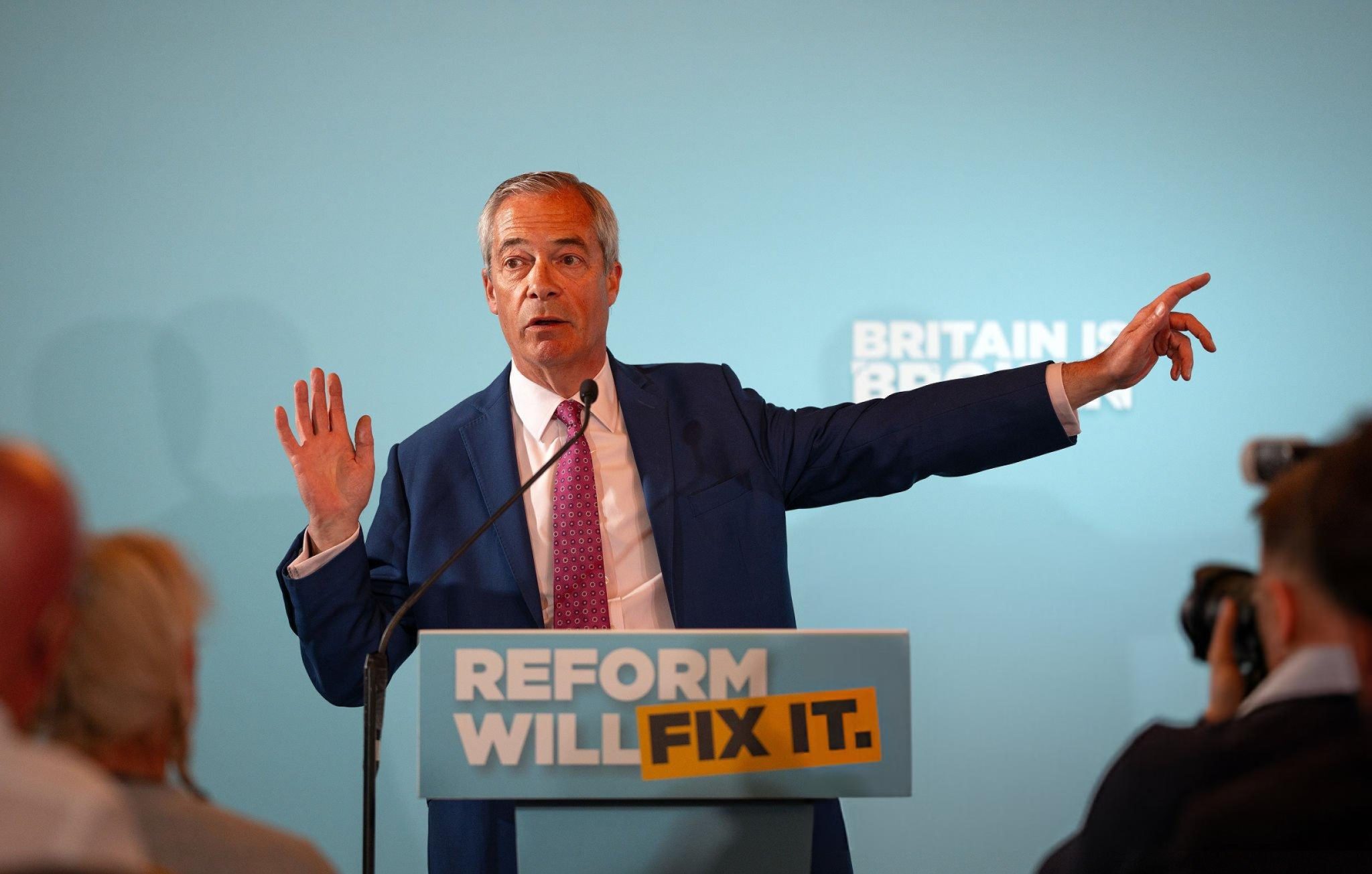Nigel Farage’s Reform UK has clinched a dramatic by-election win in Runcorn and Helsby, beating Labour by just six votes in a devastating blow to Sir Keir Starmer in his first electoral test as Prime Minister.
The shock result saw Reform candidate Sarah Pochin declared the new MP in the early hours, overturning a Labour majority of nearly 14,700 won less than a year ago in the general election. The result marks a significant moment for Farage’s insurgent party, who are increasingly eating into both Labour and Conservative support across the country.
The Runcorn and Helsby by-election was triggered by the resignation of former Labour MP Mike Amesbury, who stood down after admitting to assaulting a constituent. His fall from grace and the subsequent loss of the seat now pose serious questions for Labour, particularly in traditionally loyal working-class areas.
Amesbury had secured 53% of the vote in July 2024. Fast forward to May 2025, and the swing to Reform is nothing short of extraordinary. Pochin’s narrow victory came after two recounts, with the final tally putting Reform just six votes ahead of Labour. The Conservatives slumped to a distant third, reflecting their continued collapse in core constituencies.
Speaking after the result, Reform UK leader Nigel Farage hailed the outcome as a “very, very big moment” in British politics. “What’s happening in Runcorn and Helsby is happening right across England,” he said. “This is a movement that’s growing – voters are tired of being let down and ignored.”
Reform’s success in the by-election was echoed in local council contests held across England on the same day. In a series of shock results, the party made notable gains, particularly in Red Wall areas that had traditionally returned Labour councillors. The shift, analysts suggest, points to a deeper disillusionment with the political establishment and a growing appetite for change.
For Labour, the result is deeply worrying. Runcorn and Helsby had been considered a safe seat, and its loss on Sir Keir Starmer’s watch will be seized upon by critics as a sign the party is failing to resonate with key voter groups. While Labour performed well in some urban areas in the local elections, the erosion of support in former industrial heartlands risks undermining their broader strategy.
A Labour Party spokesperson said: “This was an unexpected result in difficult circumstances. We recognise the frustration many voters are feeling and will be redoubling our efforts to win back their trust.”
The Conservatives, meanwhile, continue to haemorrhage support nationally, with their vote share collapsing in multiple constituencies. Although Rishi Sunak’s party was spared the embarrassment of losing a by-election seat in this instance – having not held Runcorn and Helsby in the first place – the message from voters remains bleak.
Professor John Curtice, a leading election expert, described the by-election as a “turning point” that signals trouble ahead for both main parties. “Reform UK have tapped into a growing dissatisfaction with the status quo. If this trend continues, they may well find themselves holding the balance of power at the next general election.”
Sarah Pochin, the new Reform MP for Runcorn and Helsby, said she was “honoured and humbled” by the result. “This constituency wanted something different – they wanted someone who will speak up for them without fear or favour,” she said.
As the dust settles, Westminster will be watching closely. Reform’s breakthrough may have come by just six votes, but its political implications could be far greater.






